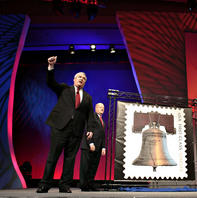
This is a kind of thing that can happen when the regulators
aren’t really interested in regulating:
When Jon Oberg, a Department of Education researcher, warned in 2003
that student lending companies were improperly collecting hundreds of
millions in federal subsidies and suggested how to correct the problem,
his supervisor told him to work on something else.
Jon Oberg, a former Department of Education researcher, warned that
student loan companies were abusing a subsidy program and collecting
millions in federal payments to which they were not entitled.
The department “does not have an intramural program of research on
postsecondary education finance,” the supervisor, Grover Whitehurst,
a political appointee, wrote in a November 2003 e-mail message to
Mr. Oberg, a civil servant who was soon to retire. “In the 18 months
you have remaining, I will expect your time and talents to be directed
primarily to our business of conceptualizing, competing and monitoring
research grants.”
For three more years, the vast overpayments continued.
—
Whistle-Blower on Student Aid Is Vindicated,
By Sam Dillon,
The New York Times,
May 7, 2007
It wasn’t so much turning a blind eye, as claiming there was no eye.
Could this happen in the U.S. telecom/ISP regulatorium?
-jsq
 What’s the theory behind
the recent postal rate changes?
The Chairman of the Postal Board of Governors spelled it out 27 years ago:
What’s the theory behind
the recent postal rate changes?
The Chairman of the Postal Board of Governors spelled it out 27 years ago:

